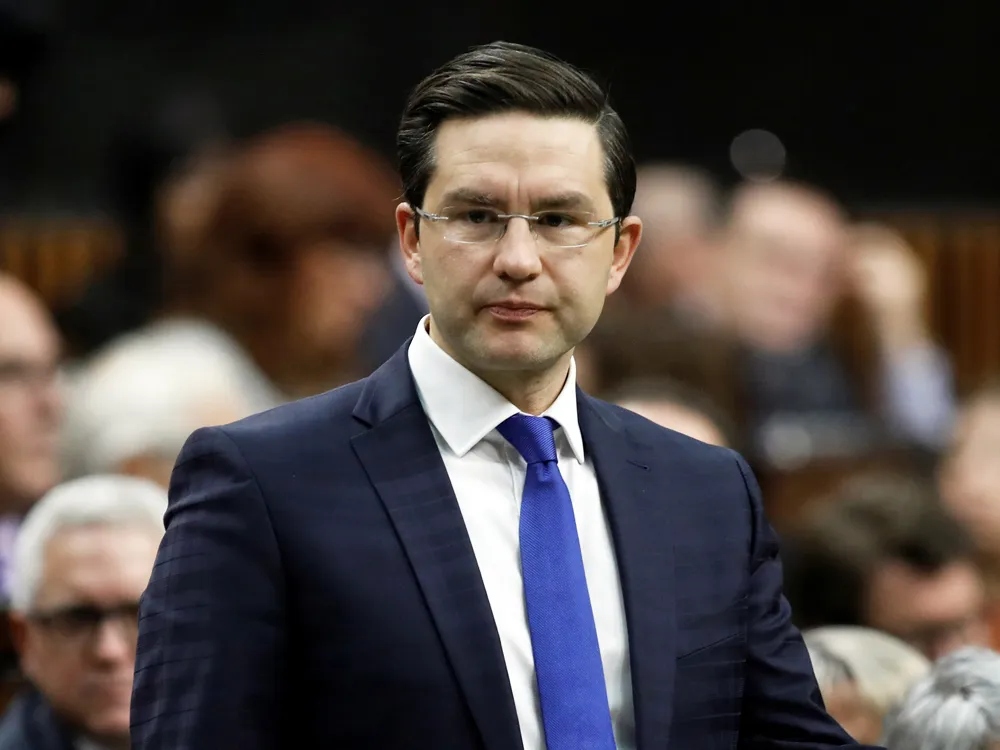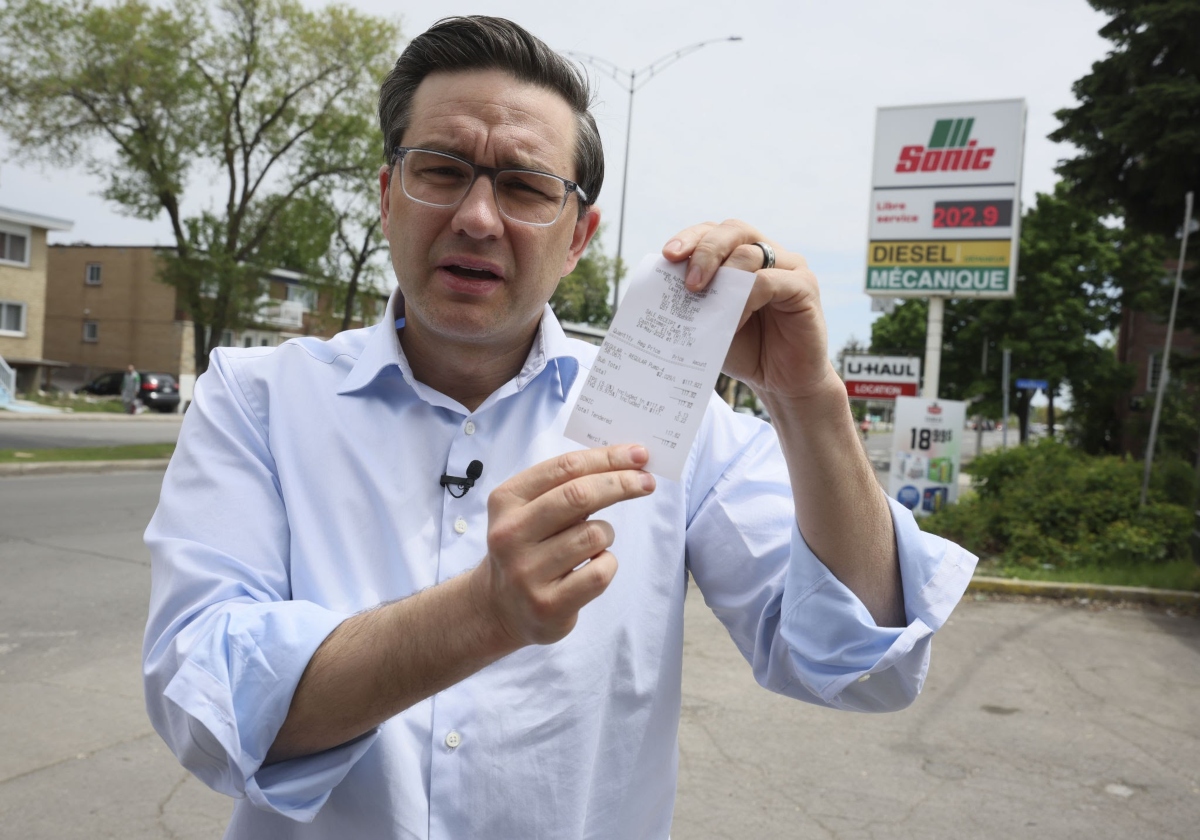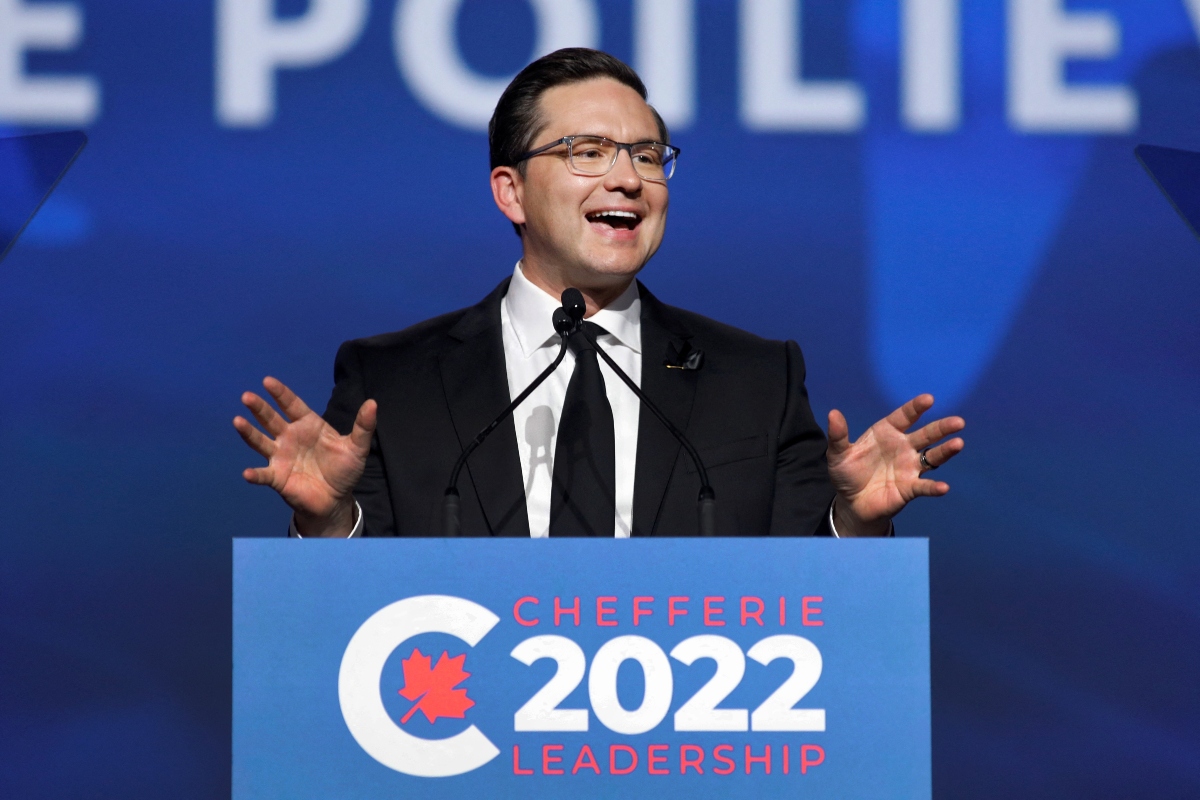Pierre Poilievre, the leader of the Conservative Party of Canada and the Official Opposition, is making headlines not just for his political prowess but also for his age and physical stature. Born on June 3, 1979, in Calgary, Canada, Poilievre is currently 43 years old. Standing at a height of 1.75 meters (5 feet 9 inches), he brings a commanding presence to the political stage.
Advertisement
Political Landscape and Polls
In recent political developments, Pierre Poilievre has emerged as a prominent figure in Canadian politics. According to a Nanos Research survey, he is now Canada’s preferred candidate for Prime Minister, marking the first time a Conservative leader has held this position since Stephen Harper. The poll indicates Poilievre’s popularity, with a commanding 32.9% support, significantly surpassing Prime Minister Justin Trudeau’s 23.3%.
“Conservative leader Pierre Poilievre continues to track positively, opening up a significant advantage over Trudeau and hitting a level not seen since Conservative Stephen Harper was PM,” said Nik Nanos in a press release.
Key Issues According to Polls
The Nanos Research survey also sheds light on the most pressing issues for Canadians. Inflation takes the lead at 18.8%, followed by jobs and the economy (11.1%), healthcare (8.4%), and the environment (7.9%). Notably, the concern over inflation has risen by three percent compared to the previous month, while the environment has dropped in priority by 6.1%.

The Conservative Party, under Poilievre’s leadership, has earned the highest party power index score at 54.2 points, followed by the NDP with 45.0 points and the Liberals at 44.4 points. The party power index considers factors such as voter preferences, accessible voters, preferences for the Prime Minister, and the quality of leadership.
Pierre Poilievre: A Political Journey
Poilievre’s political journey is marked by a commitment to public service. Born in Calgary, Alberta, he pursued a Bachelor of Arts degree in international relations at the University of Calgary. His early political career involved working for Canadian Alliance leader Stockwell Day.
First elected to the House of Commons in 2004, Poilievre has held various roles, including parliamentary secretary posts under Prime Minister Stephen Harper. His tenure includes serving as the Minister for Democratic Reform (2013-2015) and the Minister of Employment and Social Development (2015).
Advertisement
Despite his initial decision not to run for the Conservative Party leadership in 2020, Poilievre later changed course, entering the 2022 leadership election. His campaign, centered on freedom and reducing the cost of living, gained substantial support, leading to his victory on the first ballot in September 2022.
Policy Positions and Criticisms
Pierre Poilievre has positioned himself as a libertarian-minded Conservative. His economic policies emphasize addressing budget deficits, implementing a pay-as-you-go law, and supporting the normalization of cryptocurrencies, particularly Bitcoin.

In the realm of foreign policy, Poilievre advocates for a strong stance against the Chinese Communist Party, emphasizing the need for a self-reliant vaccine supply and robust measures to counter election interference.
On social issues, Poilievre has evolved in his stances, supporting abortion rights, same-sex marriage, and the continuation of the legalization of soft drugs like marijuana. However, his recent comments on gender ideology in schools have sparked controversy and drawn criticism.
Vision for Canada’s Future
As the leader of the Conservative Party and the Official Opposition, Pierre Poilievre’s vision for Canada’s future encompasses a range of policies. From economic reforms to addressing housing and infrastructure challenges, Poilievre aims to shape a Canada that prioritizes freedom, economic prosperity, and self-reliance.
As the political landscape continues to evolve, Pierre Poilievre remains a key figure to watch, with his policies and leadership style shaping the discourse in Canadian politics. The upcoming months and years will reveal how his vision translates into tangible outcomes for the nation.


Leave a Reply